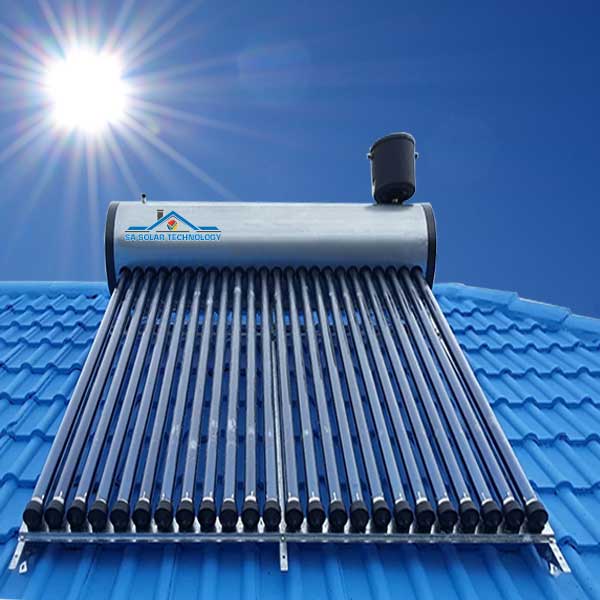Finding the best way to heat your water for your home is important for both energy savings and overall comfort. Solar geysers and heat pumps have proven to be highly efficient options for eco-friendly water heating. In this article, we will take a closer look at how to choose heat pumps and solar geysers for your home.

How Solar Geysers Work
A solar geyser convert sunlight to heat water. These systems typically consist of solar collectors, a storage tank, and a circulation system. They work by absorbing heat from sunlight, which is then used to heat the water. Solar geysers are a sustainable electricity-based systems.
Advantages of Using a Solar Geyser
A key benefit of solar water heaters is their ability to reduce electricity consumption. Since they rely on sunlight, you can significantly cut your overall heating expenses. Along with the cost savings, they are also better for the environment.
These systems work best in areas with plenty of sunshine. Even on cloudy days, many systems have electrical backup systems to keep your water heated.
When to Choose a Solar Geyser
Opting for a solar geyser works well for people seeking an eco-friendly solution. Homes located in regions with high solar exposure can take full advantage of solar energy from this system.
That being said, you should keep in mind the initial cost of a solar-powered geyser. Although solar geysers save money over time, the installation and equipment can be high. You may be eligible for rebates to help reduce the installation expenses.
What is a Heat Pump?
A heat pump use thermal energy from the environment to heat water. Instead of producing heat through combustion or resistance, they use a refrigeration cycle. This makes heat pumps highly energy-efficient, because they consume significantly less energy compared to conventional heating systems.
Why Choose a Heat Pump?
The main advantage to choose a heat pump system is its ability to save energy. Heat pumps typically consume much less electricity by up to 60-70% compared to standard electric water heaters. This translates to major cost savings on energy expenses.
Not only do heat pumps save energy, they reduce greenhouse gas emissions. Since they use renewable energy, they are a greener option compared to gas or electric heaters.
Who Should Consider a Heat Pump?
Installing a heat pump system is a great choice looking to save on energy bills. Heat pumps work best in environments where temperatures are fairly moderate, as extremely cold weather can impact their efficiency.
Similar to solar geysers, heat pump systems come with a higher upfront cost. The reduction in energy bills make them a cost-effective solution.
Heat Pumps vs Solar Geysers
Whether you choose a solar geyser or a heat pump are great options for reducing your carbon footprint. Each one comes with its own advantages and considerations. Let’s look at the key differences:
Power Consumption: Solar geysers rely on sunlight, while heat pumps use electricity but are still much more efficient than traditional heaters.
Initial Investment: The installation cost of solar geysers is often higher, but they pay for themselves through energy savings over time. Heat pumps have lower installation costs compared to solar geysers.
Climate Suitability: You’ll get the most out of solar geysers in sunny climates, while heat pumps are suitable for regions with consistent moderate weather.
Final Thoughts
Whether you choose a solar geyser or a heat pump offer great benefits for any homeowner. For sunny regions, solar geysers are the way to go. For those in areas with less sunshine, heat pumps can still deliver great energy efficiency.
Whether you opt for a solar geyser or a heat pump, you’ll help reduce energy consumption and contribute to a greener planet.